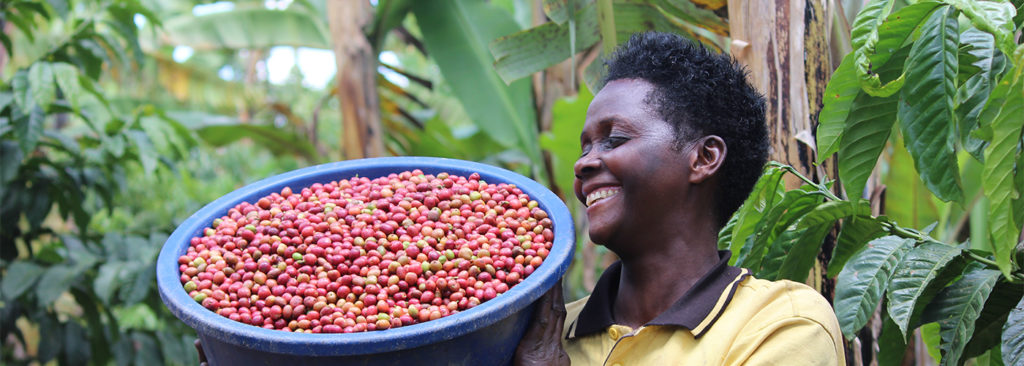Brewing equality in the coffee sector
The world of coffee is “murky”. For a consumer, grabbing their favorite latte or mocha each morning is part of an integral routine in their everyday lives. Most believe they can’t function without a ‘cuppa’, and for many it’s the perfect fuel they need ahead of a presentation at work. But the disconnect between coffee lovers and the journey their freshly brewed coffee has undergone is a divide that thrives on ignorance and has long allowed injustices to grow in the sector.
Securing a sustainable income is a daily struggle that most smallholder farmers in sub-Saharan Africa have to contend with. A quick search of the coffee sector on Google is filled with results about slumping coffee prices and a huge gap between the market share of coffee producers and marketers.
Let’s give power to the farmers and restore their dignity.
While the coffee sector has serious disparities, the one thing that binds farmers, marketers and consumers is a community of people who appreciate coffee as a beverage and realize its value of bringing people together.
A journey with coffee farmers
This is why Hivos has invested in the sector for almost three decades: to address systemic injustices that have left smallholder coffee farmers at the mercy of global monopolies that control coffee pricing. Calling for justice and fairness in the coffee sector, Hivos’ Sustainable and Secure Smallholder Systems at Scale (4S@Scale) project has walked the journey with coffee farmers from Kenya and Uganda for five years with a simple story: let’s give power to the farmers and restore their dignity.
Implemented from 2014-2019, 4S@Scale’s approach hinged on four focus areas: diversify farmers’ income to cushion them against erratic coffee prices, use bio-digester technology to improve quality of yields, engender good agricultural practices that are not harmful to the environment and lastly, promote inclusion of women and youth in the coffee supply chain.
Training farmers
The project has had its highs and lows, but farmers and the private sector have seen some significant achievements over the years. Over 93,000 farmers were trained to achieve desired results in the coffee supply chain; and job creation and adaption to climate change marked other successes in the project. Farmers who had given up on coffee now have hope that it’s possible to push for their inclusion in a sector whose primarily decision-making power lies at the top of the pyramid.
The stories of four individuals in Kenya and Uganda serve as examples that inequality does not completely dominate the coffee sector. In the documentary film by Churchill Oele and Isaiah Iraya, we see how Lucy, Erastus, Alex and Flujence’s lives – and the hard work they put into tending coffee bushes and harvesting coffee cherries – are interwoven with the freshly brewed coffee we demand every day.
Black Coffee documentary
The 4S@Scale film Black Coffee Community offers a glimpse into their lives to show the stark contrast between what coffee means to the people who consume the final product and the communities that rely on it as a source of income.
“Coffee farming has substantially improved my livelihood,” says Flujence from Mbarara Uganda in Black Coffee Community.This simple duality cuts across all the items on most smallholder farmers’ wish lists: being able to feed his or her family from coffee proceeds, practice climate smart agriculture to build their resilience to climate change, and make the sector sustainable and attractive for youth who are otherwise opting to find more profitable work in cities.

